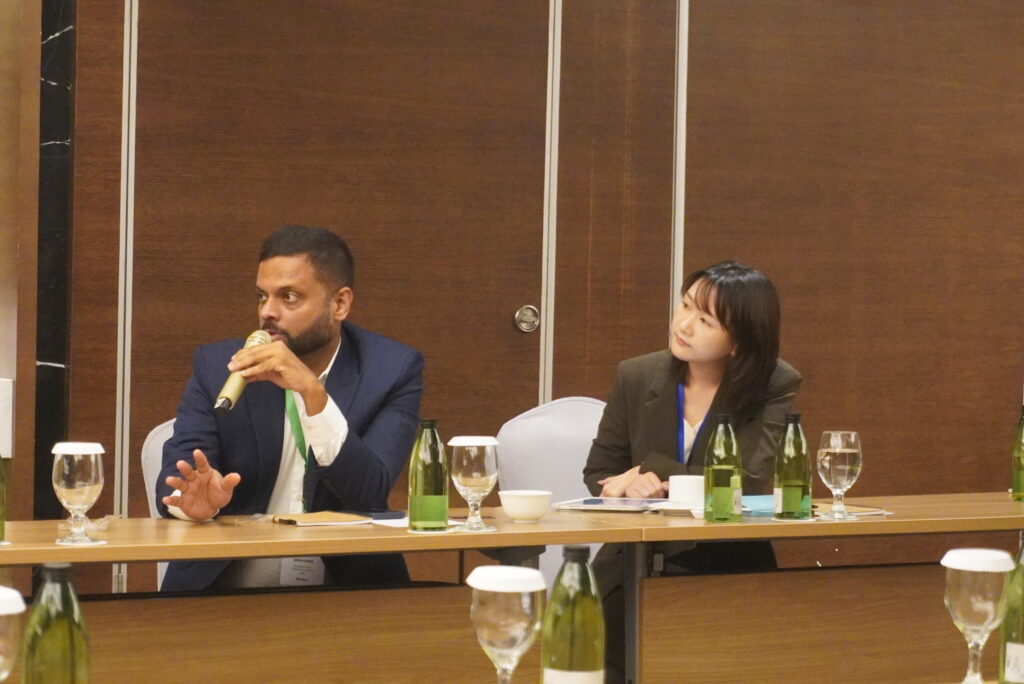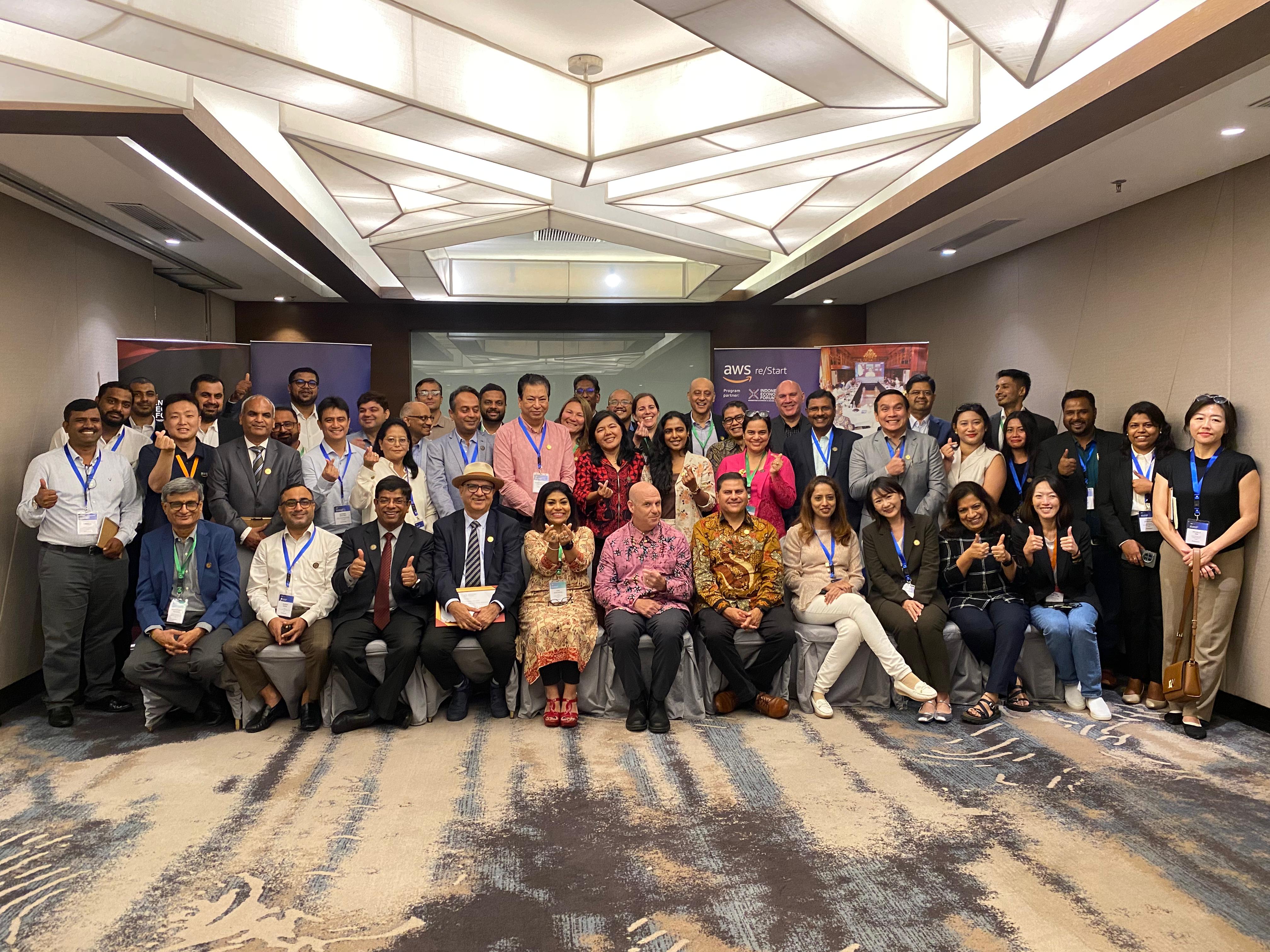
Jakarta, Indonesia – 7 October 2024: The “AWS re/Start APAC CO Summit” took place on October 2 to 4, 2024, in Jakarta. Hosted by AWS re/Start in partnership with the Indonesia Economic Forum, this summit aims to connect Collaborating Organizations (CO) from across Asia-Pacific with industry leaders. The series of events started officially on the 3rd of October with various presentations with each COs including workshop and panel discussion. The series of events was closed on the next day, 4th October, 2024, with the Indonesia Economic Forum roundtable titled “Driving Business and Societal Growth: Collaborative Strategies for Social Impact Skilling.”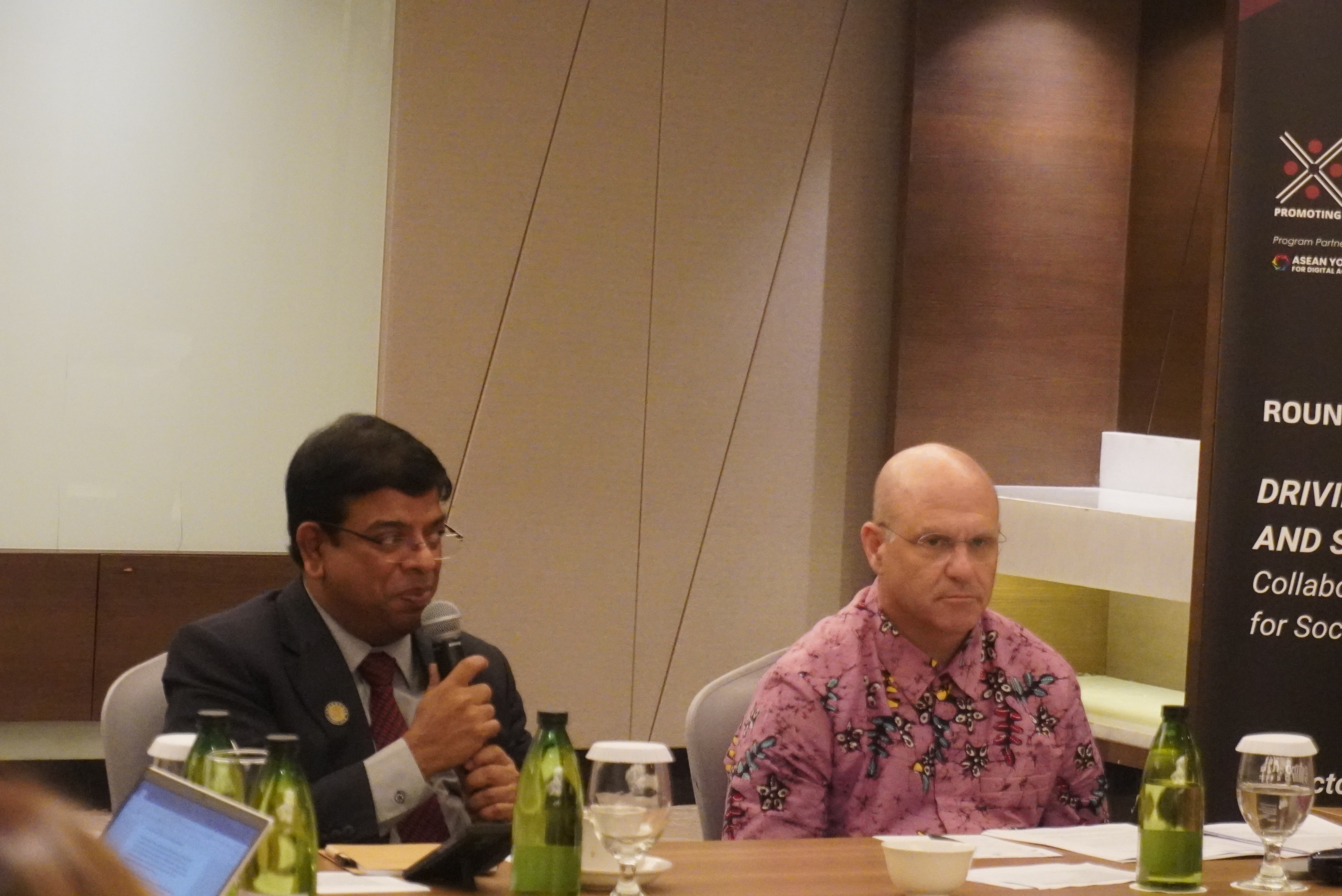
Sachin V. Gopalan, CEO of Indonesia Economic Forum; Jeff Cohen, Mission Director USAID; Rani Burchmore, AWS re/Start APAC Leader; Tejas Vashi, AWS re/Start Global Leader; along with other industry leaders and COs from across Asia-Pacific, explored collaborative approaches to effectively implement social impact skilling initiatives. Their discussions emphasized the importance of tailored training programs, partnerships, and measurable outcomes to ensure the success and sustainability of their efforts.
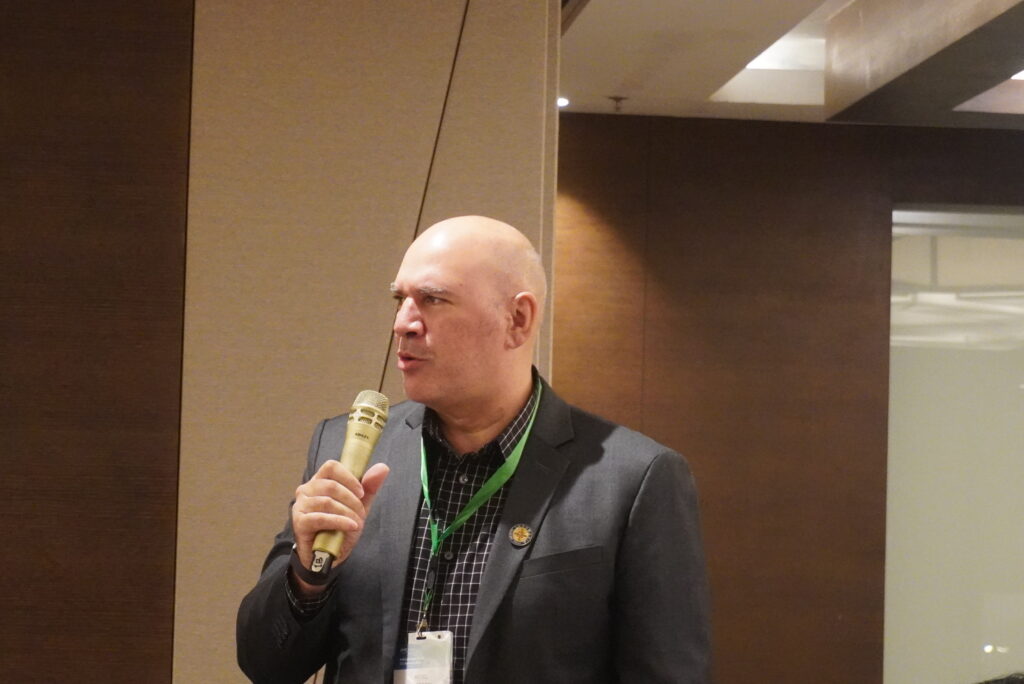
There was the urgent need for skilling initiatives that align with modern job market demands. Participants highlighted the critical importance of soft skills, such as communication and problem solving, as key components in reducing unemployment and underemployment. By prioritizing these skills, businesses can better prepare individuals for the workforce, ultimately addressing broader societal issues like job creation and economic inequality.

Mohammed Fawaz, CEO of Curveup Sri Lanka pointed out a major challenge in his country, “beyond innovation and training methods, there are still infrastructure limitations.” This struggle is common among many COs who aim to distribute upskilling initiatives evenly across the country, making it hard to reach vulnerable populations. Jeff Cohen noted that this situation presents a great opportunity to harness the benefits of AI for people in training and collaborate with AI providers.
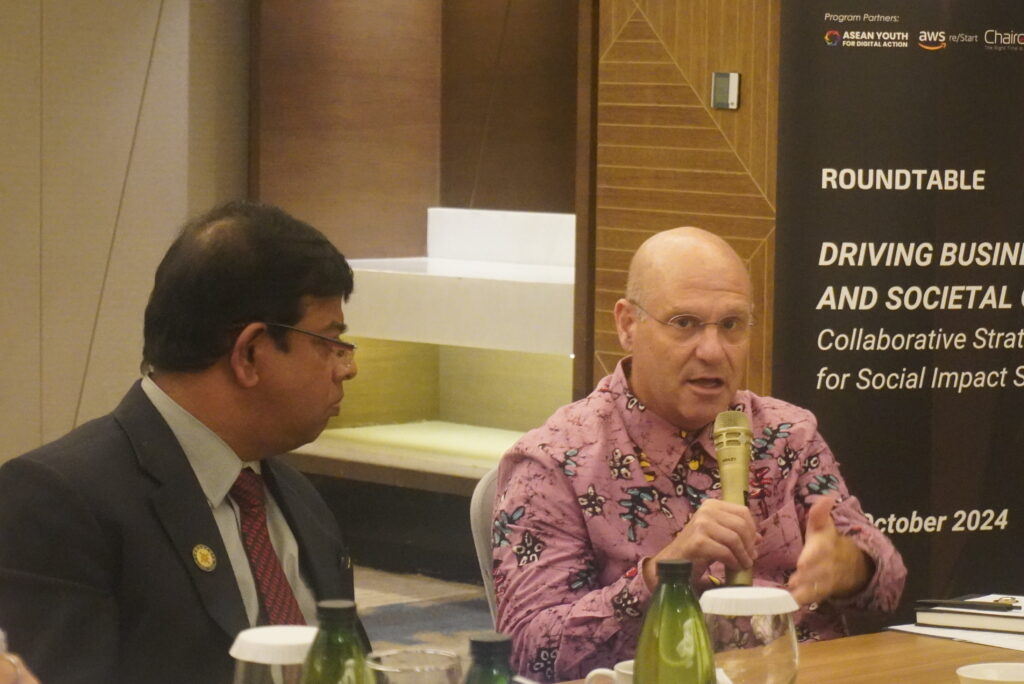
Jeff Cohen, Mission Director USAID, shared a story about his blind uncle, who remained determined and capable despite his challenges. He learned to work as an assistant to advocates in New York. “There were moments in his life where he took initiatives and seized upskilling opportunities that enabled him to have a life of service,” Cohen remarked. He emphasized that everyone in Indonesia and beyond has similar opportunities to advance and discover ways to upskill.
Rani Burchmore emphasized that AWS re/Start is dedicated to building the future workforce by equipping students and graduates with the needed skill sets needed for entry-level positions. She stated “It takes time, but it is essential.” To enhance sustainability, Rani suggested collaborating with various government agencies and industry partners on initiatives that create a long-term talent pipeline. This approach ensures that we effectively prepare individuals for the demands of the job market.
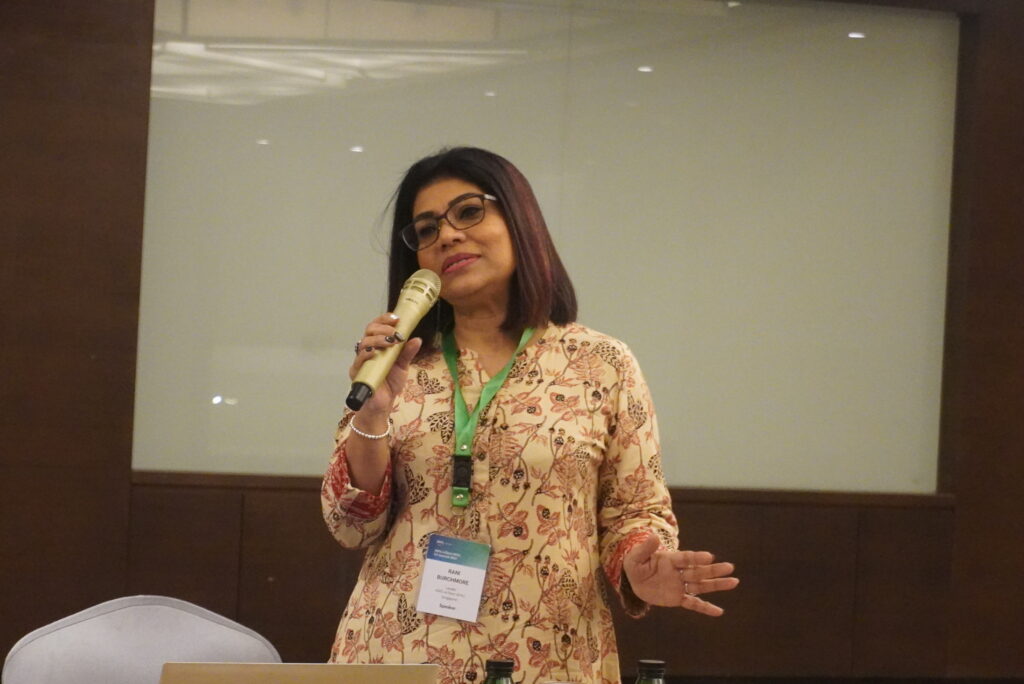
Reflecting on Rani’s insights, Nigel Watson advocated for collaboration not just among companies but also with government agencies. He emphasized that these partnerships are vital for creating effective and impactful outcomes. Drawing on his extensive experience, Watson noted that a key element of successful collaboration is the necessity for all parties to see their investment as generating sustainable value. He succinctly stated, “If you’re bleeding, then you’re unable to sustain that,” highlighting the importance of focusing on investments that promote growth.
The Indonesia Economic Roundtable with AWS re/Start underscored the importance of empowering youth by upskilling them to enhance their future career opportunities. It also highlighted the necessity for collaboration among all key stakeholders, including local governments, industries, universities, and other organizations, to create a brighter future. By fostering partnerships, these entities can pool resources and expertise to create a comprehensive network that supports workforce development.
In conclusion, addressing these challenges requires collaboration to create a robust upskilling network. The actionable frameworks, innovative models, and standardized measurement strategies discussed will not only drive success but also elevate workforce development and uplift communities. The key takeaways from the Indonesia Economic Forum roundtable series include:
- Enhancement of Soft Skills Training Programs: Focus on equipping individuals with essential soft skills that promotes employability.
- Foster Partnerships for Upskilling: Collaborate with local governments, universities, and industry leaders to create effective upskilling initiatives.
- Leverage Literacy Programs: Implement targeted literacy initiatives to support less privileged populations, overcoming infrastructure limitations.
- Promote Empowerment Initiatives: Develop programs that empower youth through educational opportunities.
- Encourage Open Dialogue and Best Practices Sharing: Maintain an open forum for exchanging ideas and sharing successful strategies among stakeholders.
By prioritizing these actions, the Indonesia Economic Forum aims to create a more skilled workforce, drive economic growth, and build a brighter future for all.

